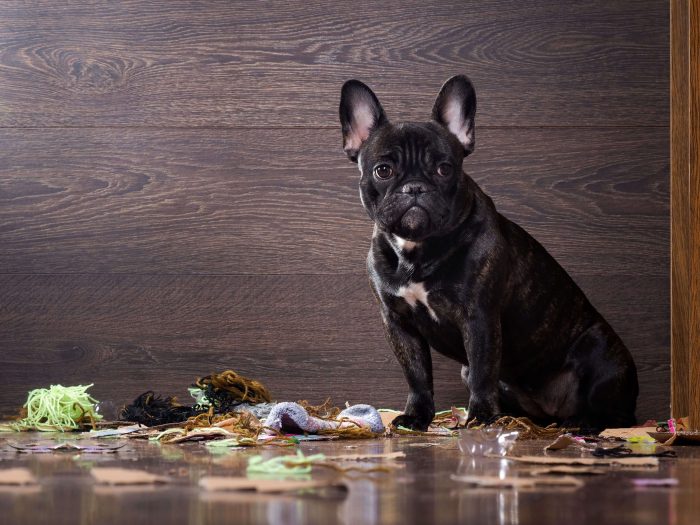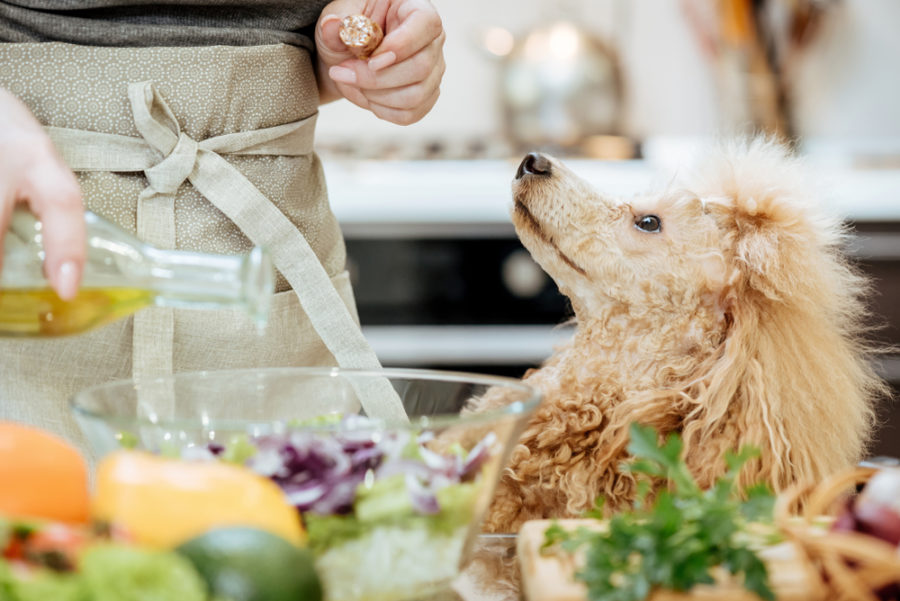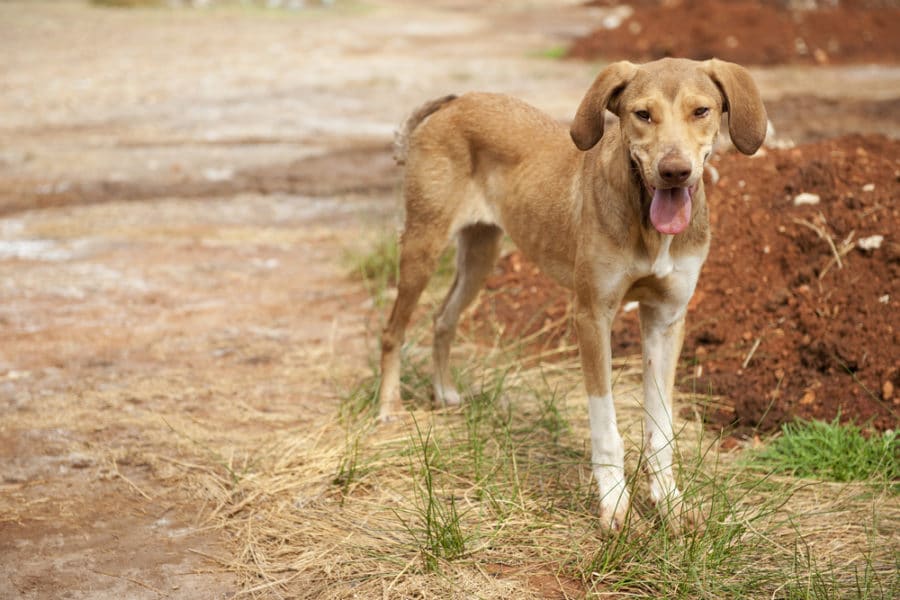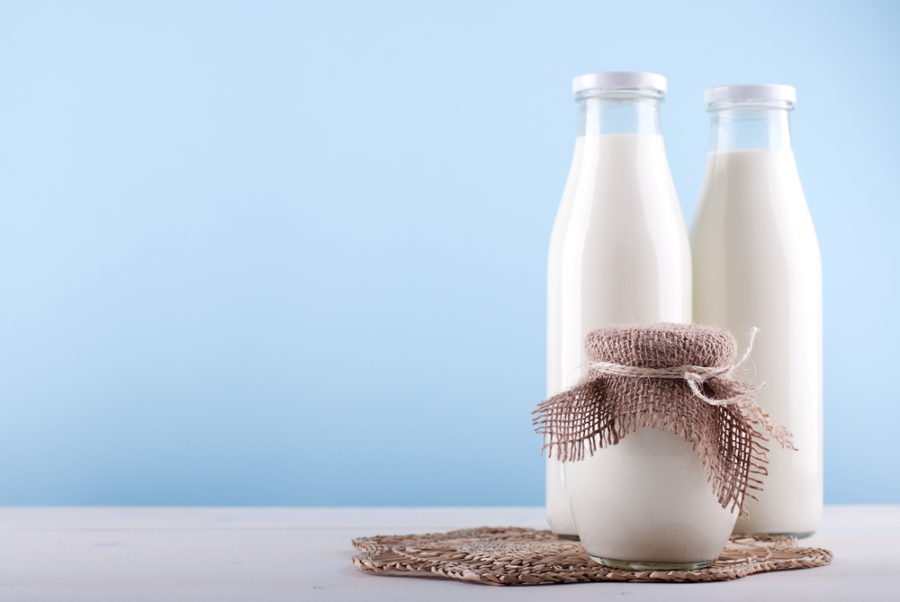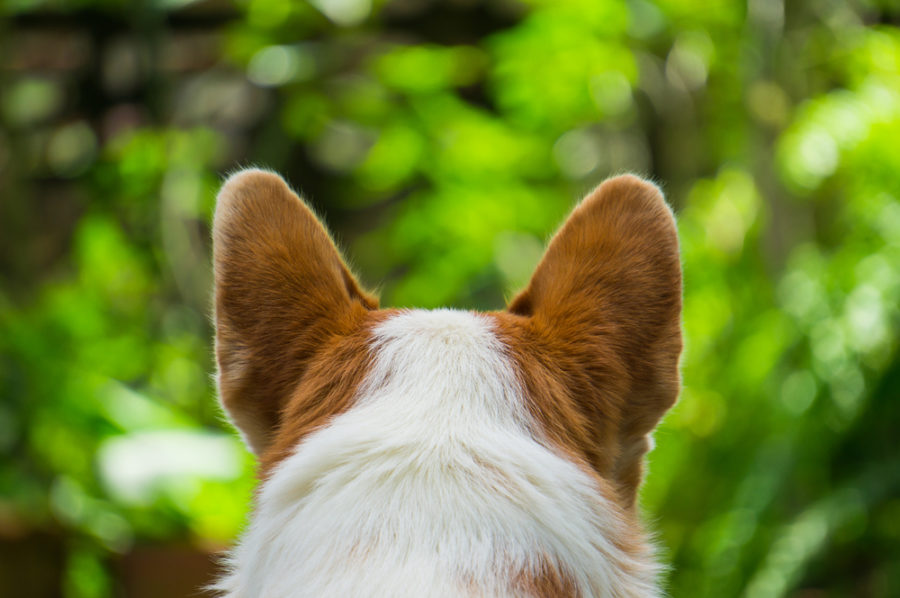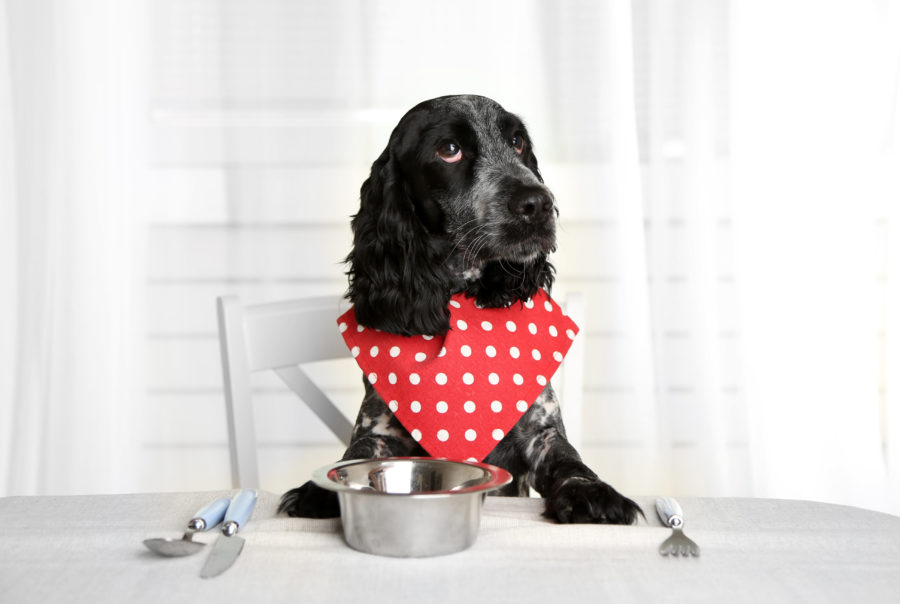Anxiety can impact your dog’s quality of life and result in a variety of troublesome behaviors. The good news is that there are many ways to naturally ease your dog’s fears and help him feel calmer.
Anxiety is a very common issue in dogs. It can surface in a number of ways – from cowering in a closet during thunderstorms to shredding the carpets when left alone. A holistic approach including nutrition, supplements, homeopathy, behavior modification techniques and more, can do a lot to naturally calm your dog’s anxiety.
Dogs experience pretty much the same feelings we do. They can feel happy, contented and calm – but they can also feel afraid, insecure and worried. The problem is, it’s often difficult to understand why a dog is anxious, because we can’t sit down and have a chat with him. What we can do is take steps to ease that anxiety so he feels calmer about whatever is bothering him.
Nutrition and vitamins
The brain has very high energy and nutrient needs. B vitamins are collectively known as “stress vitamins” because they help in high-stress situations. Vitamin D is also involved in healthy brain development and for combating anxiety.
Your dog’s brain has receptors for Vitamin D; recent research has discovered a link between Vitamin D3 and mood. Vitamin D activates receptors on neurons in regions of the brain implicated in behavior regulation. Importantly, vitamin D increases the production of serotonin, a neurotransmitter that affects the dog’s ability to handle stress and feel content. Serotonin is believed to play an important role in anxiety.
Vitamin D increases the production of serotonin, a neurotransmitter that affects the dog’s ability to handle stress and feel content.
Studies have shown that 75% of all dogs fed commercial foods are vitamin D3 deficient. Feeding your dog the highest quality diet you can afford will help solve the problem, and you can also have your dog’s vitamin D3 levels tested through VDI Labs (vdilab.com/services.php), then supplement if needed. Be sure to work with an integrative or holistic vet to determine the best product and dosage for your dog.
Melatonin and endorphins
Veterinarian Dr. Linda Aronson of Tufts University School of Veterinary Medicine says melatonin is effective for calming dogs with anxiety. Melatonin actually works with endorphins, special stress-reducing chemicals produced by the immune system. Melatonin enhances the effects of endorphins, improving the dog’s ability to withstand stress, and promoting a greater sense of general well-being.
Give dogs weighing less than ten pounds 1mg of melatonin twice a day. Dogs weighing 35 to 100 pounds should receive 3mg of melatonin twice a day, and you can give 6mg to dogs weighing over 100 pounds. Dr. Aronson cautions people to use plain melatonin tablets, not sublingual, time-release or capsule forms.
Bach Flower Remedies
 Edward Bach, an English medical doctor, noticed that specific personality types paired with specific patterns of ill health. In 1930, he gave up his successful medical practice to experiment with different plants and flowers and formulate essences from each. He created the Bach Flower Remedies, which are used primarily to heal and harmonize emotional imbalances. For example:
Edward Bach, an English medical doctor, noticed that specific personality types paired with specific patterns of ill health. In 1930, he gave up his successful medical practice to experiment with different plants and flowers and formulate essences from each. He created the Bach Flower Remedies, which are used primarily to heal and harmonize emotional imbalances. For example:
- Red Chestnut is an appropriate remedy for a dog who is protective of his owner and waits by the door for him or her.
- Chicory is indicated for the dog who destroys the house when left alone.
- Honeysuckle may be added when a dog is disturbed by being apart from his person.
These remedies can be combined in any manner you see fit.
Homeopathy and herbs
1. The homeopathic remedy, Ignatia, is absolutely wonderful for emotional stress and loneliness, and has proven very helpful with separation anxiety. You can purchase this remedy at many health food stores. Put a pellet or two in your dog’s lip pouch three times a day for a few weeks.
2. A Traditional Chinese Herbal Formula called Shen Calmer often works very well, especially in conjunction with behavior modification.
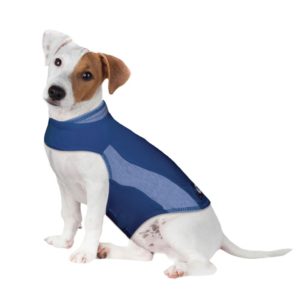
The Thundershirt
This product makes the dog feels as if he is being caressed or held. It’s used to help reduce separation anxiety, obsessive barking, fear of thunder or fireworks, destructive behavior, and social phobias that include fears of new people or pets. The dog immediately relaxes when the shirt is put on, and finds the sensation comforting.
Quality time and attention
Last but not least, it’s important to understand that dogs need quality time with their families in order to stay emotionally balanced and confident. If you plan a daily routine that allows you to give your dog some undivided attention and love, you’ll probably find you enjoy it as much as he does. When it comes right down to it, no homeopathic remedy or herb can replace love and quality time.
Suggestions for separation anxiety
When a dog is left alone for long periods, he may get frightened, bored, lonely or anxious. He may exhibit destructive behavior simply because he’s uneasy and needs an outlet for his nervous energy.
- Getting another dog may help by keeping your existing dog company when you’re out.
- Leave him with safe bones to chew and/or fill appropriate toys with healthy snacks to keep him busy.
- Soothing classical music in the background may help.
- Make sure he gets some heart-pumping exercise and playtime along with lots of quality TLC. Exercise often helps burn off excess nervous energy.
- Leave a noise sensitive recorder on during the day, and listen in to discover if any particular event, such as the mailman’s arrival, triggers the unwanted behavior.
- Help your dog get used to your absence. Start by going through the motions of leaving, but without leaving. When you do leave, don’t give your dog special attention. Leave the house for short periods at first, then gradually increase the time you are absent.
Calming diet*
Turkey is high in L-Trytophan (one reason why we mellow out after holiday meals), while barley and chamomile calm the nerves.
2 cups turkey, cooked
2 cups barley cooked with 3 eggshells
2 teaspoons chamomile flowers made into a tea with ¼ cup water
2 teaspoons parsley
2 cups of cooked carrots
1/3 cup olive oil
Mix all ingredients together and serve. Adjust portion for size of dog.
*From Dr. Khalsa’s Natural Dog, 2nd Edition

